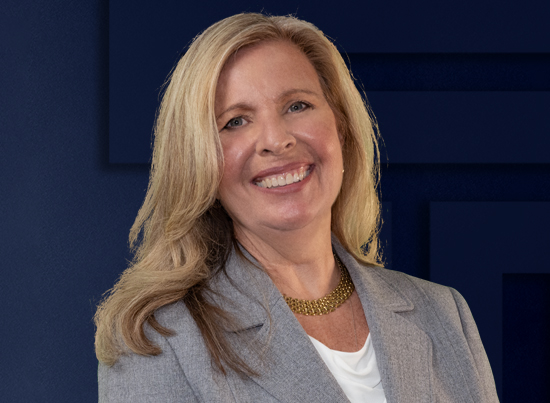Culhane Meadows’ Atlanta partner Courtney Lytle Sarnow recently authored an article about California’s new “right to repair” legislation, which has been published by Law360.
Here are a few excerpts from Courtney’s article:
On Sept. 13, the California Senate passed comprehensive “right to repair” legislation on a unanimous vote. The act was signed by Gov. Gavin Newsom on Oct. 10.
California becomes the first state to pass a comprehensive right to repair law, in what is most likely to be the first of many victories for a movement that has in large part flown under the radar.
…
The right to repair sounds like an innocuous consumer rights issue. But it has transformed into a multifaceted legal challenge that affects not only traditional consumer rights, but also copyright, software, antitrust, warranty law and a huge swath of the manufacturing industry.
Framing the Issue
The basic concept, as it is framed by the right to repair movement, is a simple one: If you buy a product, you should be able to repair it. The movement also invokes environmental concerns, highlighting the wastefulness of an economy focused on quickly replacing rather than repairing goods.
The evils of consumption-focused behavior like “fast fashion” and cheap electronics leading to overflowing landfills and garbage-choked waterways are invoked in a message of virtuous repair versus wasteful replacement purchases.
This is complicated, however, by the increasing technical complexity of even basic consumer goods. Cars, tractors, MRI machines, airplanes, cell phones and computers all have embedded software, which complicates the ability of a purchaser to make changes or repairs to the product.
…
Copyright and the Right to Repair
On a basic level, software is considered a literary work under the 1976 Copyright Act, and can therefore be protected by the same copyright laws that protect novels and oil paintings. This is not a particularly good fit, in large part because copyright protection expressly excludes all functionality or usefulness in the copyrighted work.
In other words, the way an author describes a pet theory in a best-selling book is protected by copyright, but the theory itself — whether it is the latest low-carb diet or an interpretation of string theory and quantum physics — is not covered.
…
The Copyright Act has a second way it protects developers and manufacturers in this area. The amendment to the Copyright Act known as the Digital Millennium Copyright Act, passed in 1998, is generally best known for the take-down provisions that allow music companies to get their songs taken down off unauthorized TikTok and YouTube videos.
But the DMCA also prohibits parties from circumventing anti-copying protections embedded in digital media. Under these provisions, hacking into a neighbor’s Netflix account is prohibited, as is using a program to disable encryption on a DVD.
This was originally intended to encourage content owners to offer digital media like music CDs to consumers, and remains important today — in part because the DMCA anti- circumvention provisions are not limited by fair use and other statutory limits on authors’ rights, the way regular infringement actions are.
Even if the copying would be allowed under the Copyright Act as fair use, circumventing digital protection to make that copy would still violate the Copyright Act. As a result, DMCA anti-circumvention provisions are themselves limited by the statute.
…
Antitrust and Warranty Actions: Federal Enforcement and Class Actions
The right to repair movement has also reinvigorated government enforcement actions.
In what may be the first of many such warranty-based right to repair actions, the Federal Trade Commission began an enforcement action in 2022 under Section 5 of the FTC Act and the Magnuson-Moss Warranty Act against Weber-Stephen Products LLC, Westinghouse Electric Corp. and Harley-Davidson Inc.
Almost immediately, the companies entered into a detailed and rather burdensome consent order that requires, among other things, changes to warranties, extensive self-monitoring and ongoing reports of compliance. The companies were willing to agree to the consent order so quickly in large part because their violations of the federal warranty guidelines were so blatant.
There were many expressions of dismay and surprise from companies in the wake of this enforcement action, but there had actually been significant warning. In May 2021, the FTC submitted a report to Congress announcing the commission’s intention to “devote more enforcement resources” to combat unlawful repair restrictions.
This was followed by an executive order and a public statement by the FTC prioritizing enforcement of antitrust laws and the Magnuson-Moss Act with regard to repair markets, and working with state legislators and policymakers on right to repair legislation.
…
Right to Repair Legislation
Currently, at least 20 states have either passed or are considering right to repair acts of some kind. Acts can vary from very narrow niche acts to broadly applicable rules that have significant impact across industries.
In the past, the term “right to repair” was generally applied to landlord/tenant issues. Many states, in fact, have this type of right to repair statute on the books. That may contribute to the lack of attention that the new statutes seem to be attracting.
…
California’s act marks a significant victory for the right to repair movement.
Federal legislation is part of the movement as well. Current versions of the federal Fair Repair Act would require manufacturers to make diagnostic, maintenance and repair equipment available to owners and independent repair shops and are currently paused in relevant committees. Expect to see it come out of committee in response if enough momentum in state legislatures can be created.
Meanwhile, an agriculture-focused bill, the “Agriculture Right to Repair Act,” was introduced in the House on Sept. 21. It claims bipartisan support and may have an easier path forward than the broader bill.
Conclusion
The momentum of the right to repair movement is undeniable. Legislative victories are starting to pile up, and lawsuits are forcing change, even if they have not yet resulted in large recoveries or dramatic victories.
For manufacturers, at the very least, warranty provisions must be brought into compliance with Magnuson-Moss Act standards. Companies need to acknowledge legitimate consumer complaints that result from unduly expansive proprietary software protections, and look for ways to loosen those protections without completely undermining them.
A rational balance, which allows consumers to more freely repair their goods, while still ensuring meaningful safety and quality controls and protecting the competitive advantage for companies with innovative proprietary systems, will benefit everyone.
To read the entire article, click HERE
About Culhane Meadows – Big Law for the New Economy®
The largest woman-owned national full-service business law firm in the U.S., Culhane Meadows fields nearly 70 partners in twelve major markets across the country. Uniquely structured, the firm’s Disruptive Law® business model gives attorneys greater work-life flexibility while delivering outstanding, partner-level legal services to major corporations and emerging companies across industry sectors more efficiently and cost-effectively than conventional law firms. Clients enjoy exceptional and highly-efficient legal services provided exclusively by partner-level attorneys with significant experience and training from large law firms or in-house legal departments of respected corporations. U.S. News & World Report has named Culhane Meadows among the country’s “Best Law Firms” in its 2014 through 2024 rankings and many of the firm’s partners are regularly recognized in Chambers, Super Lawyers, Best Lawyers and Martindale-Hubbell Peer Reviews.
The foregoing content is for informational purposes only and should not be relied upon as legal advice. Federal, state, and local laws can change rapidly and, therefore, this content may become obsolete or outdated. Please consult with an attorney of your choice to ensure you obtain the most current and accurate counsel about your particular situation.
Courtney Lytle Sarnow is a partner at Culhane Meadows Haughian & Walsh PLLC.
The opinions expressed are those of the author(s) and do not necessarily reflect the views of their employer, its clients, or Portfolio Media Inc., or any of its or their respective affiliates. This article is for general information purposes and is not intended to be and should not be taken as legal advice.







